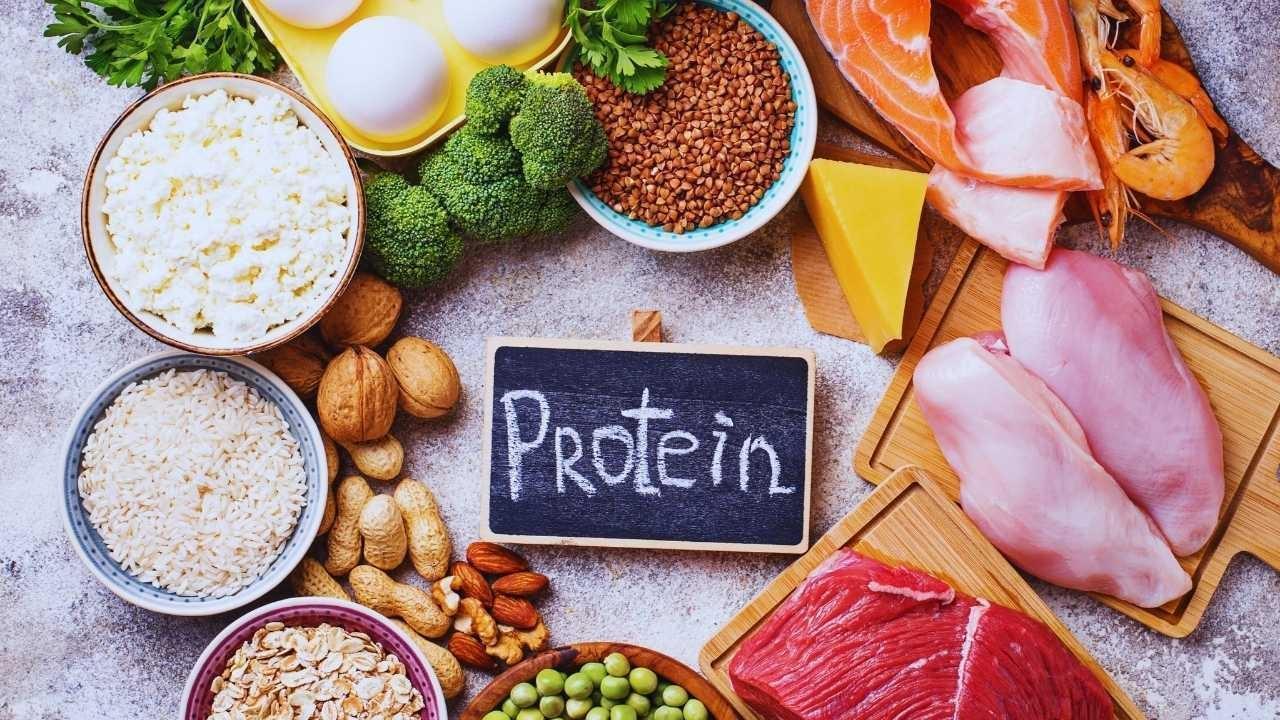
Post by : Anees Nasser
In today’s fast-paced world, everyone seems to be searching for ways to stay fit, energized, and healthy. One approach that has gained serious traction is the high-protein diet. Far beyond being a trend for bodybuilders, this dietary strategy is becoming a cornerstone for everyday health, weight management, and overall metabolic well-being. From enhancing muscle growth to supporting satiety and boosting metabolism, protein plays a central role in keeping your body functioning at its best. In this article, we explore the science behind high-protein diets, practical strategies to include more protein in your meals, and expert tips to make it sustainable for long-term health.
Protein is not just another nutrient—it’s the foundation of nearly every structure and process in the human body. Proteins are composed of amino acids, which are essential for building and repairing tissues, producing enzymes and hormones, and supporting immune function. Without adequate protein, your body struggles to perform even its basic functions efficiently.
A high-protein diet provides several benefits:
Muscle Maintenance and Growth: Protein is crucial for repairing muscles, especially after exercise. Without enough protein, your muscles may weaken over time, even if you maintain a regular workout routine.
Boosted Metabolic Rate: Protein has a higher thermic effect than fats or carbohydrates. This means your body burns more calories digesting protein, which can support weight management and metabolic health.
Enhanced Satiety: Eating protein-rich meals helps you feel fuller for longer. This can naturally reduce snacking and overall calorie consumption, making weight management easier.
Protein’s role goes beyond muscle building; it impacts energy levels, mental clarity, and even your body’s ability to fight illness. That’s why nutrition experts increasingly emphasize protein as a cornerstone of daily dietary planning.
Research over the past decade continues to reinforce the advantages of high-protein diets:
Weight and Metabolic Health: Studies show that diets high in protein, combined with fiber-rich foods and regular physical activity, help improve metabolic health. Protein not only promotes fat loss but also preserves lean muscle mass, which is key for long-term metabolic function.
Performance and Recovery: Athletes and active individuals benefit from higher protein intake, as it aids in muscle repair, glycogen restoration, and overall training adaptations. Even casual exercisers notice better endurance and faster recovery with adequate protein.
Appetite Control: High-protein meals trigger hormones that regulate hunger and fullness. This helps prevent overeating and supports healthier body composition.
In short, the science confirms what many health enthusiasts have long suspected: protein is critical for maintaining strength, energy, and long-term wellness.
Transitioning to a high-protein diet doesn’t have to be complicated. Here are some practical strategies:
Distribute Protein Across Meals
Instead of loading all your protein into one meal, aim for an even distribution throughout the day. This ensures your body continuously has the building blocks it needs for muscle repair and metabolism.
Choose High-Quality Protein Sources
Opt for lean meats, fish, eggs, dairy products, legumes, tofu, and nuts. Combining plant and animal proteins can help provide all essential amino acids, especially for vegetarians or vegans.
Adjust Protein According to Your Lifestyle
Everyone’s protein needs differ based on age, activity level, and health status. Active individuals or those trying to build muscle may require more protein, while those with lower activity levels may need less.
Pair Protein With Exercise
Protein works best when paired with resistance or strength training. Regular exercise alongside a high-protein diet maximizes muscle growth, strength, and metabolic efficiency.
Include Protein Snacks
Consider protein-rich snacks like Greek yogurt, roasted chickpeas, protein bars, or nuts to maintain energy and reduce cravings between meals.
While high-protein diets are generally safe for most healthy adults, a few considerations are worth noting:
Kidney Health: Those with pre-existing kidney conditions should consult a healthcare professional before significantly increasing protein intake.
Nutritional Balance: Overemphasizing protein at the expense of vegetables, fruits, healthy fats, and carbohydrates can lead to nutrient deficiencies.
Sustainability: Extreme high-protein diets may not be sustainable long-term. The goal should be a balanced approach that fits your lifestyle.
Being mindful of these factors ensures you reap the benefits of a high-protein diet without unwanted side effects.
High-protein diets are not one-size-fits-all. Individual factors such as age, gender, activity level, and personal health goals play a critical role in determining how much protein you should consume.
Active Adults and Athletes: May require 1.2–2 grams of protein per kilogram of body weight per day to support muscle repair and growth.
Older Adults: Increasing protein intake can help prevent age-related muscle loss and support bone health.
Vegetarians and Vegans: Should plan meals carefully to ensure they consume a variety of plant-based proteins, including beans, lentils, quinoa, and soy products.
Personalizing your protein intake ensures maximum benefits for your health, energy levels, and fitness goals.
There are several myths surrounding high-protein diets that need clarification:
Myth 1: High Protein Damages the Kidneys
For healthy individuals, higher protein intake does not harm kidney function. Problems usually arise only in those with pre-existing kidney conditions.
Myth 2: Protein Makes You Bulky
Eating protein alone will not cause excessive muscle growth. Muscle gain depends on exercise type, overall calorie intake, and genetics.
Myth 3: Plant Proteins Are Inferior
With proper planning, plant-based proteins can provide all essential amino acids. Combining different plant sources ensures complete nutrition.
Understanding these myths helps you make informed decisions about your diet and lifestyle.
A high-protein diet is more than just a fitness trend—it’s a scientifically backed approach to improving overall health, metabolic function, and well-being. When combined with regular exercise and a balanced lifestyle, it can help preserve muscle, increase energy, and enhance satiety, supporting long-term weight management. By tailoring protein intake to your personal needs and choosing high-quality sources, you can make this dietary strategy a sustainable part of your daily routine. The high-protein diet is not just for athletes—it’s for anyone looking to take control of their health, fitness, and vitality.
This article is for informational purposes only and should not replace professional medical advice. Consult a registered dietitian or healthcare provider before making significant changes to your diet, especially if you have pre-existing medical conditions or dietary restrictions.










Mattel Revives Masters of the Universe Action Figures Ahead of Film Launch
Mattel is reintroducing Masters of the Universe figures in line with its upcoming film, tapping into

China Executes 11 Members of Criminal Clan Linked to Myanmar Scam
China has executed 11 criminals associated with the Ming family, known for major scams and human tra

US Issues Alarm to Iran as Military Forces Deploy in Gulf Region
With a significant military presence in the Gulf, Trump urges Iran to negotiate a nuclear deal or fa

Copper Prices Reach Unprecedented Highs Amid Geopolitical Turmoil
Copper prices soar to all-time highs as geopolitical tensions and a weakening dollar boost investor

New Zealand Secures First Win Against India, Triumph by 50 Runs
New Zealand won the 4th T20I against India by 50 runs in Vizag. Despite Dube's impressive 65, India